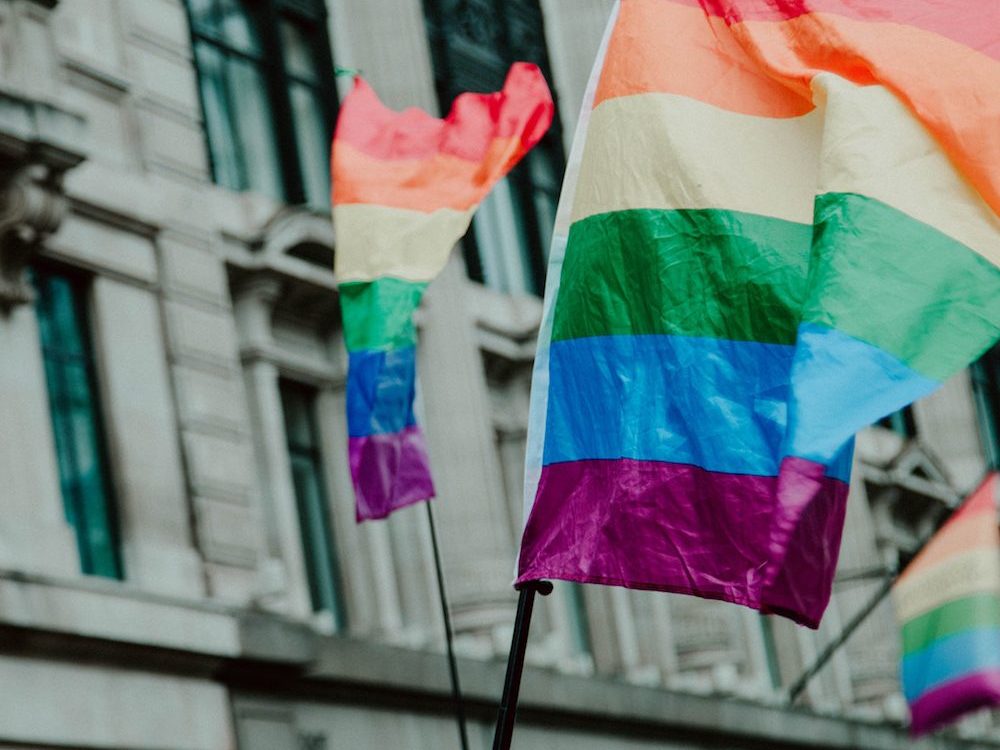At the beginning of September, The Times reported an insider’s claim that the government has been polling “culture war” issues, such as trans rights, in northern working-class constituencies to see if they could be weaponised against Labour. (Number 10 has since denied the claim.) The rise of trans visibility in recent years has resulted in a backlash from both traditional conservatives and so-called ‘gender-critical feminists’. Trans people’s rights to recognition and equality have become subject to public debate in a similar way that gay and bisexual people were in the recent past.
In 2017, following calls for trans self-identification, Theresa May pledged to reform the Gender Reform Act of 2004. She launched a public consultation before putting the issue on the back burner. The consultation heightened animosity towards trans people, emboldening anti-trans groups like Fair Play For Women. Further, Stonewall found that reports of hate crimes have risen by 81% in the last year. By the government opening up a polarising discussion and then stalling, a void has been left that shadow woman and equalities secretary Dawn Butler described as a “hostile environment” for trans people. There is also no guarantee that Boris Johnson, who has called gay men “tank-topped bumboys,” will execute the reform.
Trans people’s everyday lives and safety would obviously be impacted by this kind of opportunistic politicking if it were to happen. While the Marriage (Same Sex Couples) Act 2013 was one of the coalition government’s successes, let’s not forget that the Tories have a history of scapegoating LGBT people when it’s politically expedient to do so. In 1987, at the height of the Aids crisis, the party’s electoral campaign relied on the ‘culture war’ issue of gay rights alongside its primary pillars, the economy and defence. The campaign used billboards asking voters if they want to live in the Gay Lib, anti-nuclear “Labour camp”. Foreshadowing Section 28, another poster attacked “Labour’s idea of a comprehensive education” as consisting of books like “Young, Gay and Proud”.
During the Aids crisis, Margaret Thatcher was reluctant to issue public health warnings on the grounds of it being in “bad taste”. As Tom Crewe discusses in his powerful piece in the LRB, Norman Fowler, then health secretary, remembered Thatcher thinking that Aids was “people who get Aids, it’s entirely their fault, their responsibility and we shouldn’t spend a lot of time on it”. Despite Thatcher’s resistance, leaflets were sent to every household in 1986, though she intervened in the national newspaper campaign to remove sections explaining why anal sex increased the risk of transmission. This censoring was coming at a time when Aids activists ACT UP were arguing, correctly so, that “silence = death”.
Winning the 1987 election by a landslide, Thatcher used her keynote speech at the Conservative Party Conference to say that children “are being taught that they have an inalienable right to be gay”. Riding the wave of rising homophobia that followed the Aids crisis and gay men’s stigmatisation (in 1983, 50% of those surveyed believed that “sexual relations between two adults of the same sex” were “always wrong”; by 1987, this had increased to 64%) the Tories introduced Section 28, the first new homophobic law in a century. It banned local authorities from “promoting” homosexuality, preventing schools from teaching “the acceptability of homosexuality as a pretended family relationship”. Section 28 was an opportunistic reaction to the media circus that ensued after a single copy of a children’s storybook called Jenny Lives with Eric and Martin was found in a library of the Labour-controlled Inner London Education Authority. (The protests over similar books this year felt eerily reminiscent.) The tabloids fear-mongered with headlines like the Daily Mail’s “Save the children from sad, sordid sex lessons”. Section 28 was only repealed in 2003; a generation of children grew up in a culture of state-enforced shame, fear and ignorance.
While the modern Conservative party passed equal marriage, it’s also the party responsible for the hostile environment policy that has overseen the deportation of LGBT people. In 2017, the Home Office advised gay Afghans to “pretend to be straight” when deported to their home country where homosexuality is illegal. The Home Office decks its social media pages with rainbow flags for Pride month while increasingly rejecting applications from LGBT asylum-seekers who fear for their lives.
Conservative economic policy has also hit the most vulnerable LGBT people particularly hard. One in four homeless teenagers is LGBT; funding to crucial homelessness and housing services has been cut. There is an alarming disconnect between landmark victories like gay marriage and the effects austerity has on LGBT welfare, who are disproportionately affected by mental illness and domestic violence. With Pride increasingly sponsored by banks and M&S LGBT sandwiches lining supermarket shelves, rainbow capitalism has provided a facade that whitewashes inequality.
That’s not to say Labour’s record is clean. Just this year, some Labour MPs refused to condemn the homophobic protests against No Outsiders. Roger Godsiff, MP for Birmingham Hall Green even encouraged parents, telling them “they’re right”. Meanwhile, Shabana Mahmood, MP for Birmingham Ladywood, and Khalid Mahmood, MP for Birmingham Perry Barr, both raised the issue of “age appropriateness” – a Section 28-era homophobic trope that paints homosexuality as a threat to children.
In 1984, while The Sun was running headlines like “I’d shoot my son if he had Aids, says vicar”, LGBT people were organising solidarity networks. The London-based Lesbian and Gays Support the Miners formed a close relationship with the South Wales mining community of Dulais. By 1985, there were 11 lesbians’ and gay men’s miners’ support groups across the country. In response, the National Union of Mineworkers voted in favour of committing Labour to supporting LGBT rights and became vocal campaigners against Section 28. A solidarity movement thus developed between the groups of people the Conservatives would like to pit against each other today.
Today’s transphobic scapegoating will be looked back on in the way we view the homophobia of the 1980s: opportunistic, cruel and deadly.









